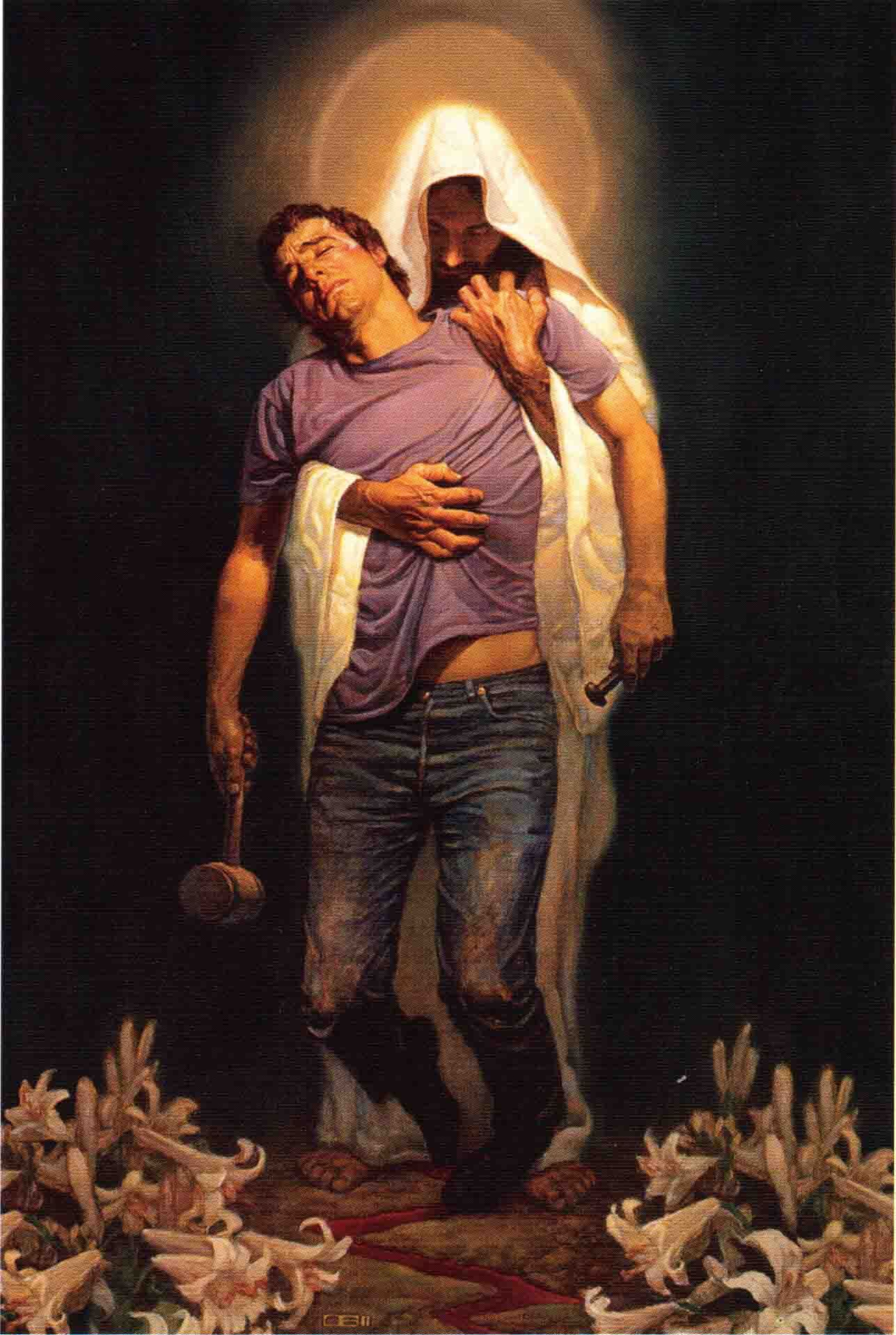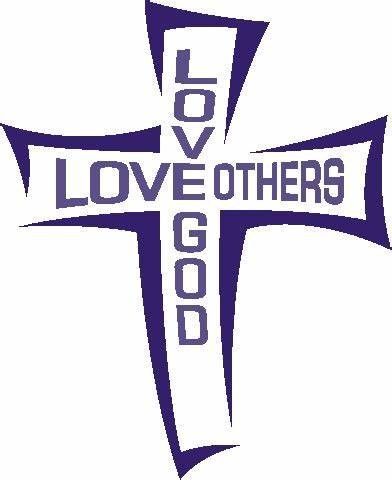Mercy and Forgiveness in LOVE

Joke: A priest was forced by a traffic policeman to pull over for speeding. As the cop was about to write the ticket, the priest said to him, "Blessed are the merciful, for they shall obtain mercy." The cop handed the priest the ticket and said, "Go, and sin no more."
What does mercy mean? Does it mean to have mercy this time, then go back and sin again and ask for mercy again? Peter asked Jesus, “Lord if my brother sins against me, how often must I forgive him? As many as seven times?” To him, Jesus replied, “I say to you, not seven times but seventy-seven times.” Mercy and forgiveness seem to be two different words, but they have the same root. They seem to have two different meanings, but they cause by the same root. They seem to have different approaches, but they approach the same goal. What is that root and goal if it’s not LOVE?
In today’s Gospel, John captured a scene of the gathering of Jesus’ disciples in a house with the doors locked for the fear of the Jews, Jesus came and stood in their midst and said to them, “Peace be with you.” Amid the fear and frightened of the Jews, Jesus strengthened them with peace, he then showed his hands and his side to remind them that following him, they will have to suffer. But even while suffering, his peace is always with them. The peace of Christ did not only with his disciples through suffering, but his peace granted them the power to forgive sins. He granted them the gifts of the Holy Spirit to forgive sins saying, “Receive the Holy Spirit. Whose sins you forgive are forgiven them, and whose sins you retain are retained.” Therefore, the peace of Christ, on one hand, reminded them that they had to go through suffering; and on the other hand, it is to give them the power of forgiveness.
The wound from his side and the nail marks on his hands portray his mercy towards his disciples and to every one of us since today the whole Church celebrates the Divine Mercy. What does mercy mean? Do we need to have mercy from the Lord? What have we done that we need mercy from the Lord?
Mercy comes from the Hebrew word rachamin which is derived from the name of the most motherly organ in the human body: the womb, “rachem”. This is where the strongest connection of compassion and love is bonded between the mother and the baby respectively. It seems that mercy, then, is rooted in a family’s relationship. The mercy that we learn and experience in our own families. This kind of relationship appears over and over again throughout the Scriptures.
The story of the prophet Hosea was reported in the Old Testament by Hosea himself. The word of the Lord came to Hosea, son of Beeri, in the days of Uzziah, King of Judah, and asked him to marry a woman of prostitution. Hosea did marry a prostitute by the name of Gomer who conceived and bore him some children by their names such as Jezreel, Not-Pitied, and Not-My-People to describe the unfaithful relationship between the Israelites and God. Even though Gomer was unfaithful to the prophet Hosea, he still loved her and hoped that she would change her way of life. Just as Hosea loved his wife Gomer and hoped that she changed her way of life even though she said, “I will go after my lovers, who give me my bread and my water, my wool and my flax, my oil, and my drink,” the Lord still hoped that we turned back to him and changed our way of life. The mercy of the Lord endures forever. Just as Hosea forgave the sins of his wife over and over again, the Lord also continuously forgives us over and over again when we acknowledge our sins and come back to Him.
In New Testament, we are all familiar with the story of Peter, tax collector Matthew, a prostitute woman caught in action, and many others. Peter, for an instant, even though the Lord Jesus warned him that he will deny him before the cock grew, still denied him and the Lord Jesus in his mercy and forgiveness still forgave him when he returned and came back to the Lord, and so the tax collector, the prostitute woman, and many others. God’s mercy and forgiveness endure forever as long as we come back to him and try to change our way of life. His mercy and forgiveness are no doubt rooted in love.
In this Divine Mercy Sunday and in showing of the wounds on his hands and his side reported in today’s Gospel, we are invited to have mercy and forgiveness to one another beginning in our own family. How would we have mercy and forgiveness towards one another in our own family if we cannot love one another? Love is the root of mercy and forgiveness and the goal of mercy and forgiveness, and it is the great commandment that the Lord Jesus Christ gives to us. What is love for you? Can you love someone without having mercy and forgiveness toward him or her? How would you love someone? Have you learned to love your family? How would you love that same love to others? Can you love just as Jesus loves us by suffering and dying on the cross because of loving us? The decision is yours.








